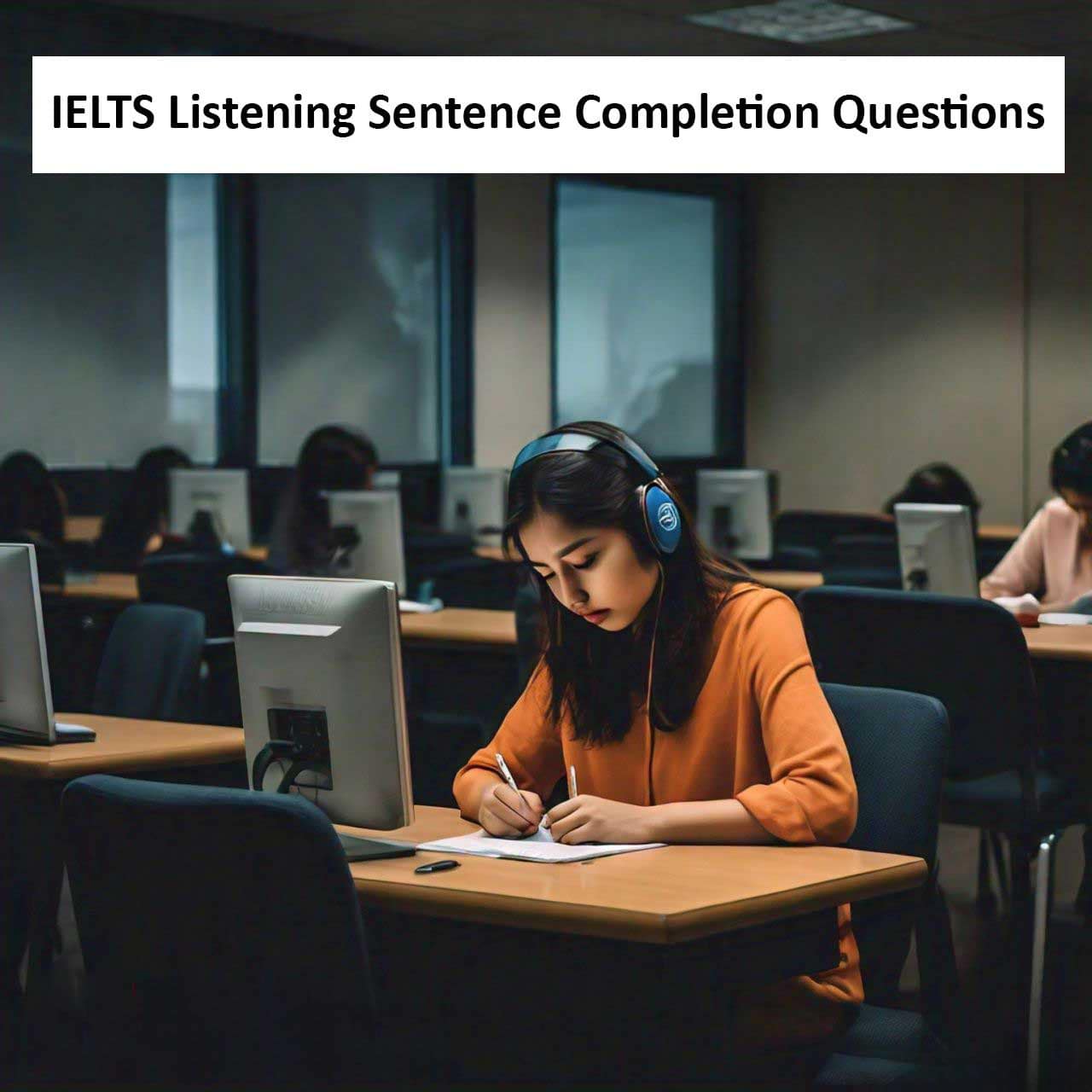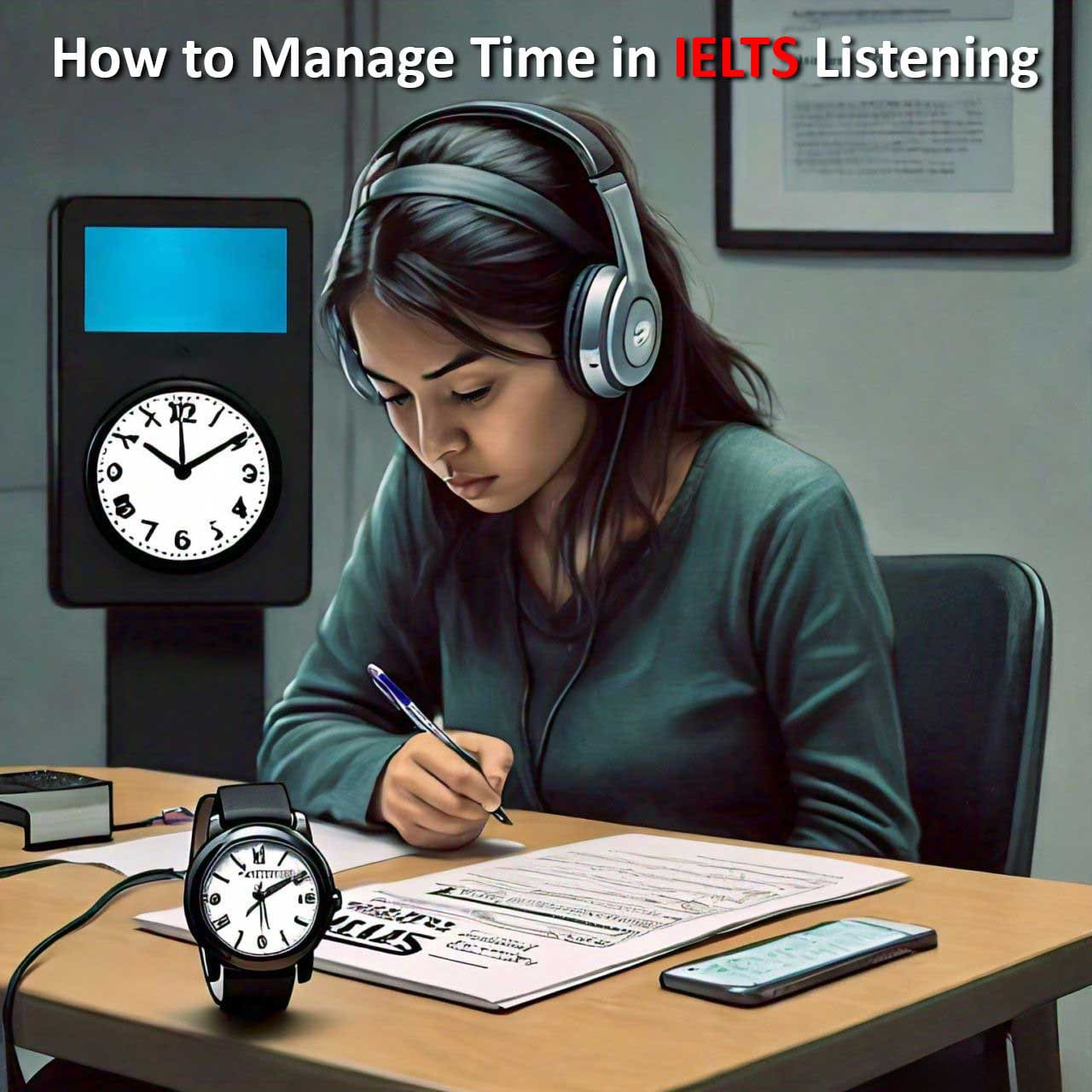Preparing for the IELTS Listening test can feel overwhelming, especially when it comes to sentence completion questions. These questions demand not only a good grasp of the English language but also strong listening and comprehension skills. In this comprehensive guide, we’ll break down how to master IELTS listening sentence completion questions in IELTS Listening with practical strategies, real-world examples, and expert tips. By the end of this post, you’ll feel confident and ready to tackle this task like a pro.
Table of Contents
What Are IELTS Listening Sentence Completion Questions?
Sentence completion questions are a common feature in the IELTS Listening test. These tasks require you to fill in the blanks of given sentences using information you hear in the audio recording. They assess your ability to:
- Understand key details and specific information.
- Follow a structured conversation or monologue.
- Identify synonyms and paraphrased expressions.
For example:
Example Sentence: The library closes at _____ on weekdays.
As you listen, you’ll hear the speaker mention the closing time, and you’ll need to write it accurately in the blank space.
Why Are Sentence Completion Questions Challenging?
Sentence completion questions can be tricky for several reasons:
- Paraphrasing: The words in the audio may not exactly match the words in the question.
- Distractors: Speakers often mention multiple times or details, which can confuse you.
- Spelling: Spelling mistakes will cost you marks, so accuracy is essential.
- Time Pressure: You’ll need to listen, process information, and write your answers quickly.
Proven Strategies to Master Sentence Completion Questions
Here are some practical tips to help you succeed:
1. Read the Instructions Carefully
The instructions will tell you how many words or numbers you can write. For example, “NO MORE THAN TWO WORDS AND/OR A NUMBER.” Writing more than the allowed limit will result in a wrong answer.
2. Analyze the Sentence Before Listening
Before the audio starts, skim through the sentences and try to predict the type of information needed (e.g., a number, a date, a place, etc.). This will help you focus better during the recording.
3. Focus on Keywords
Identify keywords in the sentence that will likely appear in the audio. These could be:
- Nouns: e.g., library, train, schedule
- Verbs: e.g., open, arrive, deliver
- Adjectives: e.g., free, busy, delayed
4. Stay Alert for Paraphrasing
The test often uses synonyms or rephrased ideas. For instance:
- Question: The event starts at noon.
- Audio: The event kicks off at midday.
5. Write While You Listen
Don’t wait until the end of the recording to write your answers. Jot down the words as you hear them and review them during the answer-checking time.
6. Check Grammar and Spelling
Ensure that your answer fits grammatically into the sentence. For example:
Sentence: He is looking for a _____. Answer: Job (correct), Jobs (incorrect).
Spelling errors, even minor ones, can cost you marks. For instance, “favourite” (British English) and “favorite” (American English) are both correct but must match the test’s standard.
Examples of IELTS Listening Sentence Completion Questions
Let’s work through an example:
Audio Transcript: “The museum opens at 9 a.m. on weekdays and closes at 6 p.m., but on weekends it stays open until 8 p.m.”
Question: The museum closes at _____ on weekdays.
Answer: 6 p.m.
Another example:
Audio Transcript: “The nearest bus stop is located just across the street, next to the supermarket.”
Question: The nearest bus stop is next to the _____.
Answer: Supermarket.
Practice Resources and Tools To excel in sentence completion questions, consistent practice is crucial. Here are some valuable resources:
- Official IELTS Practice Materials
- YouTube Channels
- Search for “IELTS Listening Practice” for free tutorials.
- Apps
- Apps like “IELTS Prep” and “IELTS Practice Band 9” offer interactive exercises.
- Online Forums
- Join communities like Reddit’s IELTS Subreddit for tips and peer support.
- Further Links
- Further IELTS Listening links from this site
Common Mistakes to Avoid
- Ignoring Instructions: Always follow the word limit.
- Not Reviewing Answers: Use the time provided to check for grammar and spelling errors.
- Overthinking: Stick to the information in the audio without adding extra details.
Final Thoughts
IELTS Listening Sentence Completion Questions can be tricky, but with the right strategies and consistent practice, you can excel. Focus on understanding the context of the audio, identifying key details, and staying attentive throughout the recording. By mastering these skills and following the tips and examples provided in this guide, you’ll be well on your way to achieving a high score.
Ready to start your IELTS journey? Practice consistently, and remember that every effort you make brings you closer to your dream score. Best of luck!
For more insights on IELTS preparation, check out IELTS Essentials.



